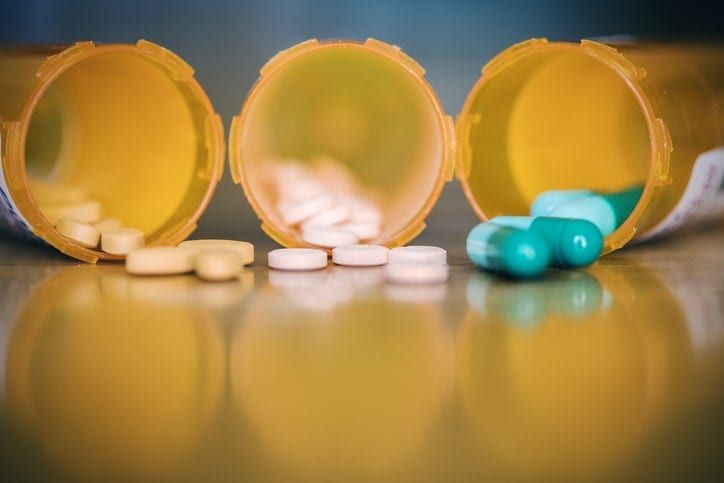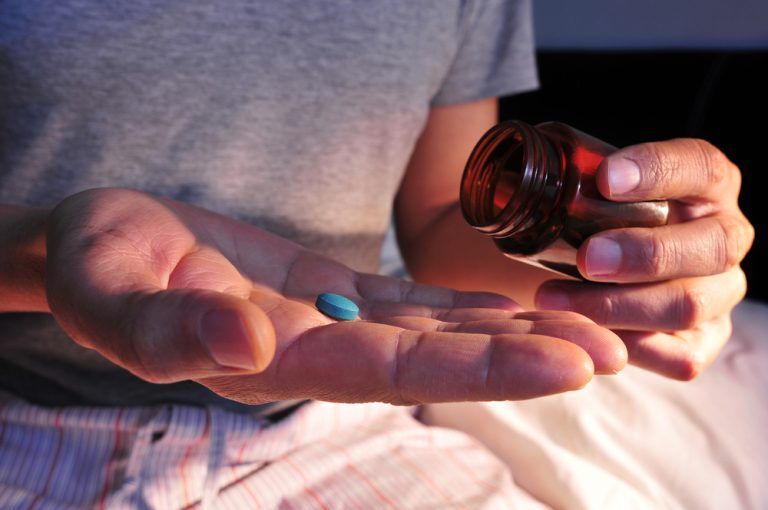Can Prescribed Medication Become Addictive?
Advance Minds Blog
A safe space to explore subjects within the community such as mental health, substance abuse and personal identity.
Our safe space also provides the opportunity for real individuals to express their hardships and success through writing.
Can Prescribed Medication Become Addictive?

Can Prescribed Medication Become Addictive? Simple Facts
While prescribed medications are essential for treating a variety of health conditions, some of these drugs have the potential to become addictive if not used properly.
Prescription drug addiction can develop when medications that are meant to manage pain, anxiety, or other health problems are misused or taken for an extended period.
Understanding which medications carry a risk of addiction and how to use them responsibly is essential for preventing dependency and safeguarding your health.
1. Can Prescribed Medication Be Addictive?
- Yes, it can: Certain prescribed medications, especially those affecting the brain’s reward system, can lead to physical dependence and addiction when taken outside of recommended guidelines.
- Risk factors: Misusing medication, taking higher doses than prescribed, or using someone else’s prescription can significantly increase the risk of addiction.
2. Types of Addictive Prescription Medications
- Opioids: Commonly prescribed for pain relief, opioids like oxycodone, hydrocodone, and morphine are highly addictive due to their powerful effects on pain receptors and dopamine release in the brain.
- Benzodiazepines: Drugs such as Xanax, Valium, and Ativan, prescribed to treat anxiety and insomnia, can cause dependence due to their calming effects on the nervous system.
- Stimulants: Medications used to treat attention-deficit hyperactivity disorder (ADHD), like Adderall and Ritalin, can be addictive due to their ability to increase focus and energy levels.
- Sedatives: Sleep medications like Ambien and Lunesta are designed to treat insomnia but can be habit-forming if used long-term or in higher doses than prescribed.
3. How Prescription Drug Addiction Develops
- Tolerance: Over time, the body may develop a tolerance to certain medications, requiring higher doses to achieve the same effects, which can lead to misuse and dependence.
- Physical dependence: With long-term use, the body may become dependent on the medication, and stopping or reducing the dose can lead to withdrawal symptoms like nausea, anxiety, and irritability.
- Psychological dependence: Some people may begin to crave the effects of certain medications, feeling unable to function without them, leading to compulsive use despite negative consequences.
4. Signs of Prescription Drug Addiction
- Taking higher doses: One of the earliest signs of addiction is increasing the dosage without medical guidance to achieve the same effect.
- Frequent refills: Requesting prescriptions earlier than needed or visiting multiple doctors ("doctor shopping") to obtain additional prescriptions.
- Behavioral changes: Mood swings, neglecting responsibilities, and secretive behavior around medication use can indicate a developing addiction.
- Withdrawal symptoms: Experiencing symptoms like anxiety, insomnia, headaches, or cravings when the medication is not taken may suggest dependence.
5. The Risks of Prescription Drug Misuse
- Overdose: Misusing prescription medications, especially opioids or sedatives, can lead to dangerous and potentially fatal overdoses due to respiratory depression or heart failure.
- Health complications: Long-term misuse of prescription drugs can cause liver damage, heart problems, memory loss, and other severe health issues.
- Mental health impact: Addiction to prescription medications can worsen mental health conditions like depression and anxiety and increase the risk of suicidal thoughts.
6. Prevention of Prescription Drug Addiction
- Follow your doctor's instructions: Always take medications exactly as prescribed, and never increase the dose without consulting your healthcare provider.
- Avoid long-term use when possible: If a medication has addiction potential, ask your doctor about alternatives or limit its use to the shortest time necessary.
- Regularly assess your medication needs: Periodically review your medication with your doctor to determine if it's still needed or if adjustments can be made to avoid dependency.
- Do not share medications: Never take medications prescribed for someone else or give your prescription drugs to others.
7. Treatment for Prescription Drug Addiction
- Detoxification: The first step in overcoming prescription drug addiction is detox, where the body is gradually weaned off the substance under medical supervision to manage withdrawal symptoms.
- Therapy and counseling: Cognitive-behavioral therapy (CBT) and other forms of counseling can help individuals address the root causes of their addiction and develop healthier coping strategies.
- Medication-assisted treatment (MAT): For some prescription drug addictions, particularly opioid addiction, medications like methadone or buprenorphine can be used to reduce cravings and withdrawal symptoms.
- Support groups: Peer support through groups like Narcotics Anonymous (NA) provides emotional support, encouragement, and accountability during recovery.
8. Common Myths About Prescription Medications
- Myth: "If a doctor prescribes it, it’s safe." While prescription medications are intended to be safe when used as directed, they can still be addictive if misused or taken long-term.
- Myth: "Only illegal drugs are addictive." Many people falsely believe that prescription medications are less dangerous than illegal drugs, but some prescription medications are just as addictive, if not more so.
- Myth: "I can stop whenever I want." Addiction is a complex medical condition that affects the brain, making it difficult for individuals to quit without professional help.
9. How to Use Prescription Medications Safely
- Communicate with your doctor: Always be honest with your healthcare provider about your medical history, including any history of addiction, to avoid being prescribed high-risk medications.
- Use only as directed: Stick to the prescribed dosage and timing, and never alter the way you take your medication without consulting your doctor.
- Properly store and dispose of medications: Keep medications in a safe place to avoid misuse by others, and dispose of unused or expired medications safely to prevent them from falling into the wrong hands.
10. When to Seek Help
- Recognize the warning signs: If you find yourself taking more medication than prescribed, feeling cravings, or experiencing withdrawal symptoms, it’s time to seek help.
- Talk to a healthcare provider: If you or a loved one is struggling with prescription drug addiction, speak to a doctor or addiction specialist to discuss treatment options.
- Reach out for support: Support groups, counseling, and rehab programs are available to help individuals recover from prescription drug addiction and rebuild their lives.
Final Thoughts:
Prescription medications can be lifesaving when used as directed, but some have the potential to become addictive if misused. Opioids, benzodiazepines, stimulants, and sedatives are among the most commonly abused prescription drugs, and addiction can develop quickly if caution is not taken. By following your doctor's instructions, using medications responsibly, and recognizing the signs of addiction, you can protect yourself from the risks of prescription drug dependence.
If you or someone you know is struggling with prescription drug addiction, early intervention is key to preventing long-term damage and achieving recovery. With the right treatment and support, it’s possible to overcome addiction and lead a healthier, more balanced life.
















